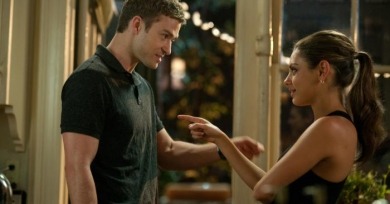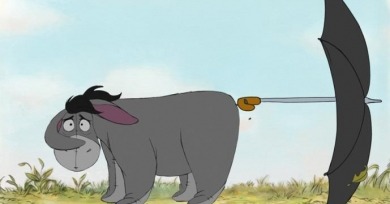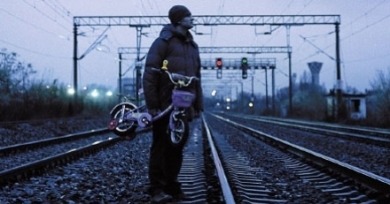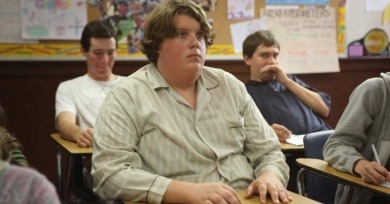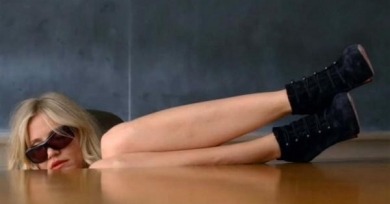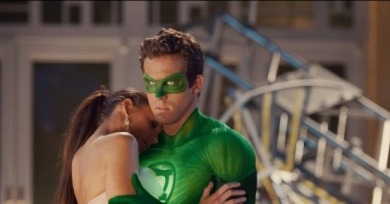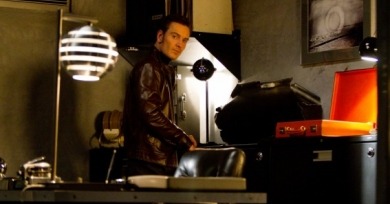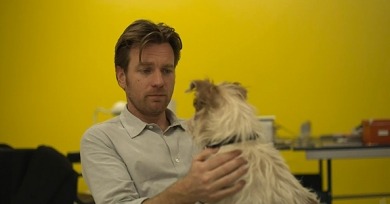Reviews
Director Joe Johnston dusts off some of the mise-en-scène from his earlier foray into retro-futurist tinged action, 1991’s The Rocketeer. The Captain America costume has a particularly nice tangibility to it.
Going the Distance, Love and Other Drugs, No Strings Attached, and the latest, Will Gluck’s Friends with Benefits, are all drenched with nineties irony, ample sexting, swearing, and preening narcissism passed off as sardonic self-awareness.
I wouldn’t hesitate to trade all the dimensional novelties of the latest Pixar picture for the single moment here when the screen is tilted this way and that to rouse the eponymous ursine protagonist out of bed, a bit of play with the frame that’s right out of The Navigator.
Orphans and primitives both, Bay and Nim approach their respective means of communication—cinema and signing—awkwardly, and from a removal; their resulting control over their languages often suggests clever mimicry instead of true language.
Puiu and Sergovici constantly block our access to Viorel, placing him in distanced long shots or half-obscuring him behind entrapping door frames and obstructive curtains.
The terror of teenhood is in full flower in Azazel Jacobs’s alternately disarming and discomfiting Terri. Mostly gone is the (intentionally) coddling warmth of Jacobs’s breakout, the melancholic and marvelously musty Momma’s Man.
Most damning, though, is that the film refuses to answer the one basic question that must have come to mind for anyone who watched even the trailer: What’s her story?
The early buzz on Conan O’Brien Can’t Stop, which follows the titular talk show host on his 2010 Legally Prohibited from Being Funny on Television tour, was that it revealed a meaner, bitterer Conan, overwhelmed and lashing out at close colleagues.
When one thinks of John Turturro’s films as a writer-director, the distinctive aspect that might spring to mind is not visual but sonic, a screen that vibrates less with strong images than with powerful aural groupings and collisions.
It’s not fun to watch a favorite actor fail. Much to the confusion (and amusement) of certain of my friends, I’ve cultivated a great fondness for Ryan Reynolds over the years, probably ever since his preternaturally snappy line readings on the late, and unlamented, ABC sitcom Two Guys, a Girl, and a Pizza Place.
Fassbender tries all the way through, even when donning that ridiculous metal helmet. Perhaps he’ll prove to be the straight male version of Joan Crawford, giving his all whether doing Mildred Pierce or Trog. If only First Class was Trog-level bad.
There won’t be a dry cheek in the house after sitting through Mike Mills’s tearjerker Beginners, but that’s only because of all the cuteness that practically drips off the screen.
Though Godard’s latest nudge at the limits of cinema parades a number of the director’s usual puckish gestures, multilingual plays on words, and provocative image-puns, it’s nonetheless a dour archaeology of the roots of our cultural end times.


